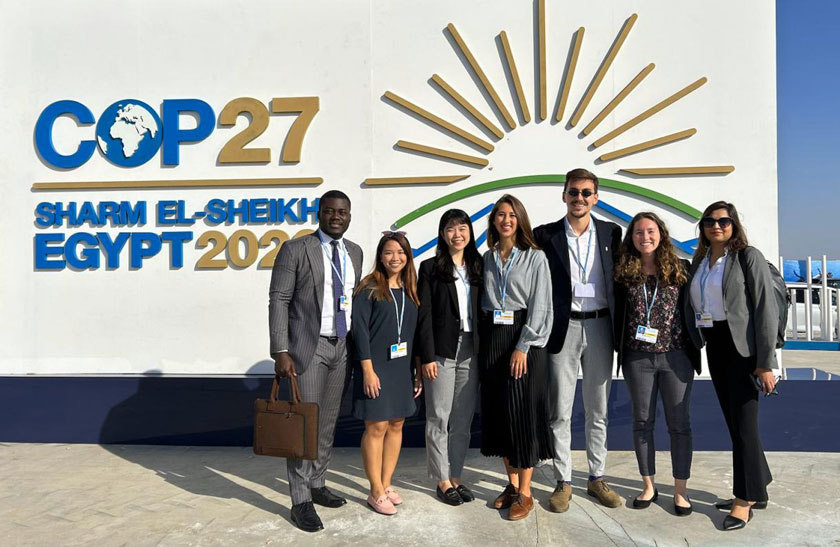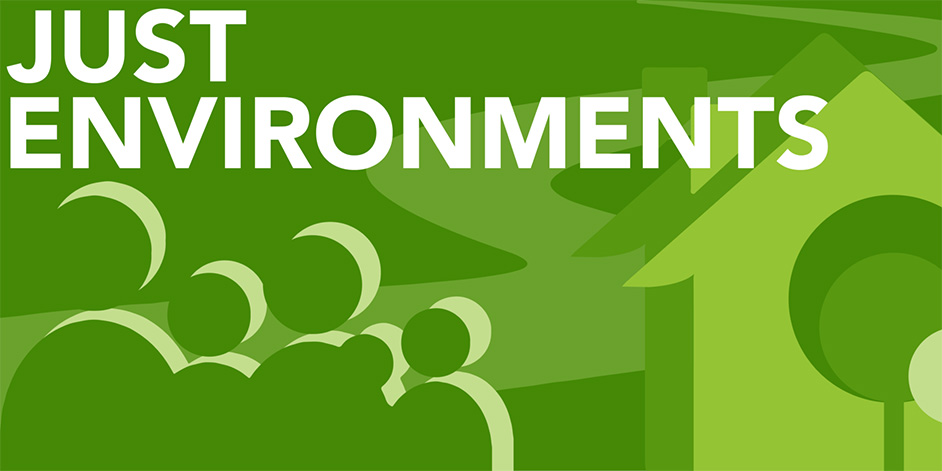Climate and Environmental Justice
There’s every reason to believe that what we see now with our heat seasons are the new norm. It isn’t beyond the scope of our imaginations to believe that this might be the coolest summer for the rest of our lives.
Highlight
New Hub Focuses on Safeguarding Communities from Extreme Heat
In early summer 2023—at the start of a record-breaking heat season—the Nicholas Institute launched a first-of-its-kind program in the United States to address the increasing effects of extreme heat on human health and well-being. The Heat Policy Innovation Hub brings together Duke scholars, government agencies, communities, and other stakeholders to develop and deploy heat policy solutions that could ultimately save lives. In its initial months, the program has helped advance planning and preparedness projects, disseminated educational resources, and leveraged media outreach and op-eds to highlight immediate and long-term recommendations for keeping the most vulnerable cool.
Highlight
Analysis Quantifies Growing Water Affordability Challenge
Costs for providing water services in the United States have been steadily rising for utilities and their customers for decades, but the scope of this affordability challenge has been “inadequately defined and measured.” A peer-reviewed analysis led by Nicholas Institute water policy experts attempted to quantify the challenge, finding 17 percent of households struggle to afford basic water services in 787 communities served by the United States’ largest utilities. The analysis builds on years of work by the Nicholas Institute, including a series of discussions with US water leaders convened in partnership with the Aspen Institute and a dashboard that provides a clearer picture of how affordable water services are in US communities.
Millions of people served by the largest US water utilities who live in households that spend more than one day's labor each month on water and sanitation services
Safe, reliable water services are essential for everyone to thrive, but a substantial number of Americans may be finding them difficult to afford. When costs rise faster than incomes, it strains the budgets of a wide swath of US households already struggling to make ends meet, as well as utilities trying to adequately serve their customers.
Highlight
Duke Experts Advance Investment Tools for Low-Carbon Development
Are pathways out of poverty and climate vulnerability possible for millions in low- and middle-income countries (LMICs) without driving a global surge in carbon emissions? The answer may depend on investment decisions made this decade. Launched by the James E. Rogers Energy Access Project at Duke, New Frontiers in Climate Finance scopes the challenges and opportunities inherent to climate finance in LMICs in an effort to increase the scale and transformational impact of climate finance to these economies.
Education Highlight
Duke Students Get Up-Close Look at Climate Negotiations
Fourteen students from five Duke schools attended the 2022 UN Climate Change Conference (COP27) in Egypt as part of the university’s unique UN Climate Change Negotiations Practicum. This Bass Connections-affiliated course supported by the Nicholas Institute helps students develop a comprehensive understanding of the issues at the heart of global climate change, from adaptation and mitigation to the political dynamics of the negotiations process. At the conference, students sat in on critical global conversations—many of which focused on climate justice—and supported “clients” (governments, nongovernmental organizations, and other groups).
More in Climate and Environmental Justice
Assessing Capacity for Infrastructure Development to Benefit People and the Planet
The Infrastructure for Good barometer, developed by Economist Impact and supported by Deloitte and the Nicholas Institute, benchmarks the capacity of 30 countries to sustainably deliver efficient and quality infrastructure that addresses critical economic, social and environmental needs.
Fostering Environmental Justice Approaches at Duke
A joint program of the Nicholas Institute and the Kenan Institute for Ethics, Just Environments invests in collaborations between communities, students, and scholars based on research and data justice principles in order to explore solutions and practices to promote environmental justice.
Pursuing Solutions to Improve Agricultural Resilience, Energy Access, and Livelihoods
The Distributed Renewable Energy-Agriculture Modalities project in Ethiopia was launched to demonstrate the viability of solar mini-grids for delivering improved irrigation services, greater agricultural productivity and expanded rural electrification.
Leading on Global Climate Action
As in years past, Nicholas Institute experts were part of a robust Duke presence at COP27 in Egypt, where the inequitable impacts of climate change’s impacts on vulnerable countries was a key theme. Institute team members engaged with decision-makers, convened and spoke at events, and exchanged ideas through informal conversations.









